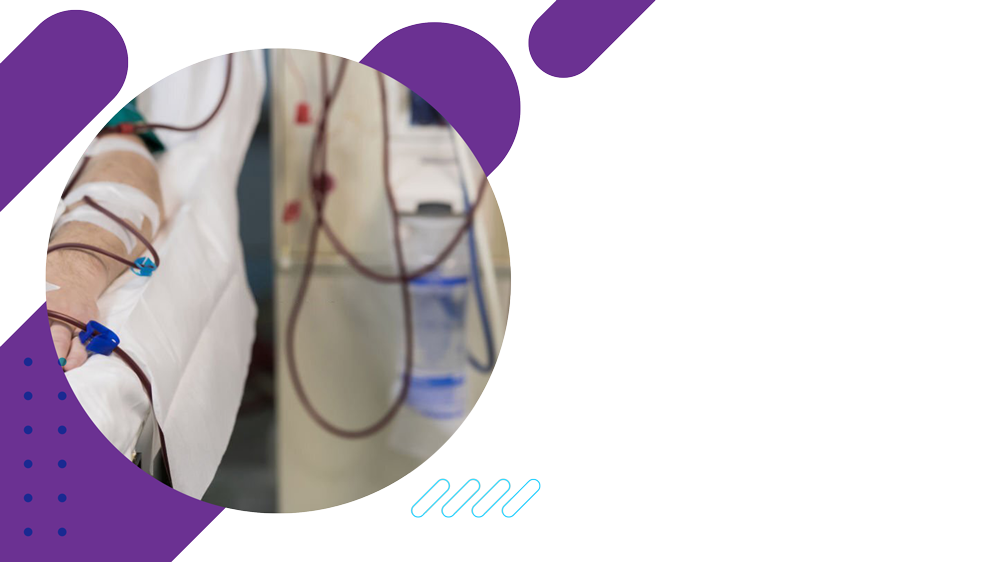Dialysis can be thought of as a routine procedure that is designed to treat those who suffer from kidney failure or are affected by complications that affect the regular functioning of kidneys. It can be of help in performing certain functions of your kidney that aren’t up to the task and it is usually done along with regular intake of certain medications and proper care.
The main function of Dialysis is to remove excess fluid, waste products and toxins from your blood and it usually involves diverting your blood into a machine for it to be cleaned properly and then diverting the blood back into your body. The method in which the dialysis is performed can depend on how long you require it, whether it’s short-term access or long-term access. In case of short-term access, it can be performed through a catheter, which is usually placed in a large vein in your neck, leg or your groin area. For a procedure that is more long-term, dialysis can be performed based on two methods, namely haemodialysis and peritoneal dialysis.
Dialysis is usually required by those who have kidney failure, end-stage renal disease(ESRD) or those who are suffering from injuries and conditions such as diabetes, and high blood pressure that affect the regular functions of a kidney. A person awaiting a kidney transplant can also undergo dialysis while waiting for an accurate match.
As mentioned above there are two types of dialysis that are performed for those who seek to undergo it for a long period. Depending on your treatment and convenience, you may undergo either one of these methods of dialysis.
During haemodialysis, a machine will remove the blood from your body, filter it through a dialyzer (artificial kidney) and return the clean blood to your body. Your surgeon might perform some minor surgical procedures to connect your body to the dialyzer, they are:
Arterioveno
Hemodialysis is a 3-5 hour process that is usually done in the hospital or a dialysis centre three times a week. It can also be done at home with proper assistance and care four to seven times a week if you are looking to reduce the hours spent. It can also be done when you sleep but it should be done with proper care and caution. It’s recommended that you seek the assistance of someone with sound medical knowledge and training when it is done at the convenience of your home.
Some side effects that might result from hemodialysis include:
Peritoneal dialysis uses the inside lining of your abdomen, known as the peritoneum as the filter rather than a machine. It is done by placing a catheter through an incision near your belly button into the space inside your abdomen, known as the peritoneal cavity. The catheter is to be left inside permanently.
Then the fluid is pumped into the peritoneal cavity through your catheter and as blood passes through the peritoneal cavity, waste products and excess fluids are drawn out and absorbed into the dialysis fluid. The used fluid is then drained into a bag and replaced with fresh fluid. This is usually done about three to four times a day and it roughly takes about 30 – 40 minutes of your time.
If you prefer, the process of changing the liquid can also be performed by a machine overnight while you sleep. This can be done with a machine at your home, at your work or even when you travel.
The risks associated with peritoneal dialysis can be more severe as they can cause skin infections or lead to other conditions such as :
Though it might sound and look scary, with proper caution and care, people with dialysis can live a good life and get used to the process. If your treatment goes well, you can easily carry on with your life and perform activities like,
They can gradually carry on with the day-to-day plans in their life which might involve studying, working, and pursuing certain hobbies and they can plan and travel on a holiday.
One can remain on dialysis for many years, though at the end of the day, the treatment can only partially compensate for the loss of kidney function. This means there’s a chance that someone can die while on dialysis, if their kidney problems are not fixed or if they are yet to receive a kidney for their kidney transplant.
A person in their twenties undergoing dialysis can be expected to live for twenty years or longer while those aged above 75 can survive through dialysis for only about two to three years.
If you undergo dialysis regularly, you must contact your doctor immediately if you experience these symptoms:
Dialysis is usually understood to be a temporary fix to your kidney problems. More often than not, your doctor will seek to fix your kidney issues through medications or surgery to solve it permanently than have you depend on dialysis for the entire course of your life.
